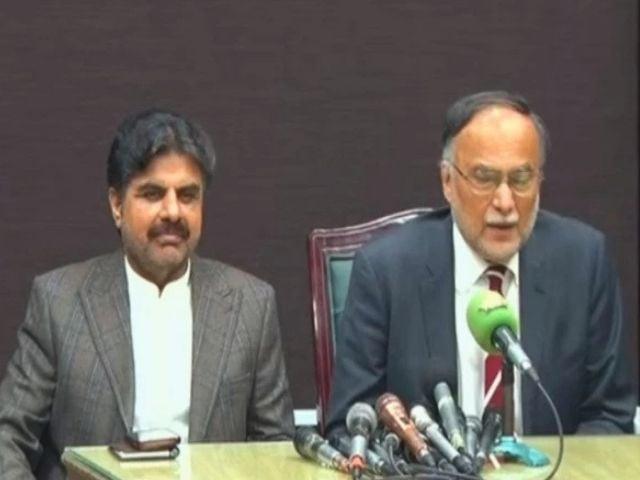Federal Minister for Planning, Development and Special Initiatives Ahsan Iqbal on Monday played down Pakistan People’s Party’s (PPP) warning to quit the coalition government, characterizing political disagreements as “family differences” that can be resolved internally.
“There is always a bit of musical rhythm within a coalition government, like within a family. Brothers may have disagreements, but that does not mean there is a serious rift,” Iqbal told reporters in Karachi.
His comments came after PPP spokesperson Shazia Marri expressed dissatisfaction with the Pakistan Muslim League-Nawaz (PML-N)-led federal government, accusing it of sidelining her party in decision-making processes. .
Marri warned that the coalition government would collapse if the PPP withdrew its support, citing complaints over the establishment of the Pakistan Maritime and Sea Ports Authority and the delay in convening the Council of Common Interests (CCI).
Iqbal, however, assured that both sides remain committed to the development of Pakistan.
“The PML-N and the PPP have different ideologies, but we are united for the betterment of the country. “This collaboration is the essence of the Charter of Democracy signed by Nawaz Sharif and Benazir Bhutto,” he said.
The Planning Minister emphasized the need for a cooperative policy, noting that confrontation would not benefit the nation in the current circumstances. He added that Finance Minister Muhammad Aurangzeb will soon convene the much-awaited National Finance Commission (NFC) meeting.
Focus on cyberspace security
Addressing concerns over Pakistan’s digital infrastructure, Iqbal highlighted the importance of protecting cyberspace, likening it to protecting the nation’s physical borders.
“Technology is both an opportunity and a threat. Cyberspace is a new frontier and all countries are striving to defend it,” he said, noting that Pakistan has been slow to address these challenges.
Iqbal also highlighted the progress in software exports, which increased by 34% due to uninterrupted VPN services provided by the government. However, he acknowledged that Pakistan is still behind other nations in digital readiness.
“We need to work diligently to ensure the security of our people and our critical infrastructure,” he said, warning that cyber vulnerabilities could destabilize financial and energy systems.
Despite the challenges, Iqbal expressed optimism that gradual improvements would strengthen Pakistan’s political and digital landscape.




